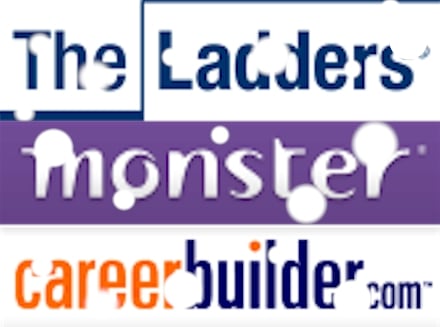Next week I’m doing a presentation to a group of alumni from Cornell University’s Johnson School of Business, about how to work with headhunters. These are seasoned executives who have been running companies for 7-15 years, and who turn to their alma mater’s Career Management Center for an added edge. What they want to know is, how can they get a good headhunter’s attention? What’s the big secret? And, how can they speed up the process?
When I do such talks, I usually find my theme in a current controversy. This time, it surfaced in a BNET blog posting by Jessica Stillman: Secrets of Job Hunting in a Post-Job Board World.
Kudos to Stillman for even writing about “a post-job board world.” Her article is really about how to get past the job boards by getting the attention of real, live people, including headhunters. In referring to a list of “tips” from yet another blog, Stillman triggered afresh a controversy that I think has long bewildered job hunters at all levels: If you decide to forget the job boards, can you really find a job by developing real, live contacts?
I found the theme for my Cornell presentation by picking at some of the suggestions Stillman passes along. Let’s see where it gets us.
 Be findable: But who do you want to find you?
Be findable: But who do you want to find you?
In Stillman’s posting, the “seven things employers should tell job seekers about how to get considered” starts with some suggestions about using keywords to be “findable.” Let’s be careful here. If you want to be findable to headhunters, there are headhunters, then there are headhunters. How you set yourself up to be found depends on what kind of headhunter you’re trying to appeal to.
The majority of “headhunters” aren’t really headhunters. They’re dialing-for-dollars, and they are indeed looking for your keywords, because they understand little about the industries and companies they recruit for. They rely on buzzwords to “turn up” resumes that they blast out in bulk to their “clients.” To such headhunters, clients are any companies that are advertising jobs — and the “headhunters” throw resumes at them, hoping the spaghetti will stick to the wall and earn a fee. It’s a numbers game. When you feel a “headhunter” has wasted your time, it’s because the wrong one found you.
What’s really key?
Good headhunters aren’t looking for keywords. They are looking for key people, in places like discussion forums where the best and brightest are talking shop. Good headhunters look for substance, and for the gurus that others turn to for advice. They target those discussion leaders as potential candidates. It takes a lot more than keywords to get the attention of good headhunters, who are looking for complete sentences and proof of skills and reputation.
So, be careful how you make yourself findable. The keyword/buzzword route will waste a lot of your time, because it attracts flies. The ability to talk shop with your peers, and to develop a strong reputation, will get the long-term attention of good headhunters. Once they identify you, they will start to follow you around, because those headhunters realize that you’re not just a potential candidate. You will likely lead them to other good candidates.
Find good headhunters by going where they hang out.
These important distinctions between headhunters also suggest how you need to appeal to the ones you’re interested in. Although good headhunters use the Net in deliberate, thoughtful ways to identify movers and shakers in the community they recruit from, they don’t spend most of their time behind a pc, waiting for names to turn up in response to search strings and keywords. They don’t scour the stale databases of job boards for resumes. So, where else do they hang out?
 They attend industry events. They circulate in real time in the real world. Are they going to find you out there, among the movers and shakers in your business, who hang out with like minds? Do you go to such events? Do you attend seminars and presentations? Do you take continuing education courses? Do you contribute your knowledge and expertise at such events, as a presenter or teacher? Do you have a real life in your industry? That’s where good headhunters are looking for you — in the real world.
They attend industry events. They circulate in real time in the real world. Are they going to find you out there, among the movers and shakers in your business, who hang out with like minds? Do you go to such events? Do you attend seminars and presentations? Do you take continuing education courses? Do you contribute your knowledge and expertise at such events, as a presenter or teacher? Do you have a real life in your industry? That’s where good headhunters are looking for you — in the real world.
Good headhunters don’t gather dead resumes.
The suggestion that it’s important to “post your resume” is troubling. Lots of the most talented people don’t even have resumes. Their resumes are represented by the chain of their contributions to their field, by the people they influence, and by the circle of friends  they belong to. Their living resume is often found in the pages of the industry press, across discussion forums, and in the products they design, make, and sell. It’s also on the lips of other industry notables, who are quick to recommend experts they know and trust. That’s the living resume — it doesn’t have to be written, or on paper. It’s the resume that good headhunters are looking for.
they belong to. Their living resume is often found in the pages of the industry press, across discussion forums, and in the products they design, make, and sell. It’s also on the lips of other industry notables, who are quick to recommend experts they know and trust. That’s the living resume — it doesn’t have to be written, or on paper. It’s the resume that good headhunters are looking for.
If you are going to have a written resume, then it matters where you post it. If you have a blog where you teach your peers something useful, that’s a high-quality place to put your resume, because the blog proves the resume and brings it to life. If you participate actively on professional forums, where you are tested, critiqued, and judged by your peers, that’s good, too. That’s where good headhunters hang out, looking for living proof of talent. But slapping a written resume all over the job boards will just make you look desperate or too-easily available. That’s a dead resume, because there’s no proof connected to it. The spaghetti headhunters that pick your resume off one board or another will soon have you splattered all over kingdom come.
What kind of headhunter?
The dig about contingency headunters, in the list of tips that Stillman quotes, is a shallow one. Some of the best headhunters work on contingency. That is, they get paid only if they fill a position. Retained headhunters get paid whether they fill a position or not, and whether they find the candidate or whether the candidate is recommended by the hiring manager’s brother. Both kinds of headhunters can do an excellent job; they just operate under different models. Don’t make the mistake of dismissing the contingency folks; they fill some of the tastiest positions. Judge headhunters by their behavior, not by how they bill their fees. (For a comprehensive look at how headhunters operate, see How to Work with Headhunters… and how to make headhunters work for you.)
What is killing the job boards?
I agree with this in Stillman’s column: Some recruiters will keep using job boards, but job boards will also continue to commoditize people. Most job boards rent, trade, sell, and “scrape” resumes. There are quite a few legitimate niche job boards, like Dice.com. But the only honest general-purpose job board I know  is LinkUp.com, because it does just one thing: match people to real jobs.
is LinkUp.com, because it does just one thing: match people to real jobs.
Otherwise, the job board business has become so corrupt that its model no longer has anything to do with filling jobs. It sells stale data to wishful employers and desperate job hunters, and also “upsells” that data to companies that make money from it in other (sometimes questionable, sometimes illegal) ways. (What do you think is one of the leading channels of identity theft?) That’s why you find expired three-year-old jobs on services like TheLadders, and it’s why you get e-mails from spaghetti headhunters long after you thought you removed your resume from a job board. These job boards don’t care if you find a job, they just want you to keep coming back to look for one, and they will “curate” your resume forever, all over the Net.
Yes, some recruiters will keep using job boards, and some employers are looking to buy spaghetti. But the uproar from angry customers — both job seekers and employers — is what’s killing the job boards.
You don’t need to “sell” yourself to someone who trusts you.
Today, the biggest load of bullshit in the career industry is that getting a great job is all about selling yourself. This popular metaphor — that you are a product — leads to dangerously useless practices, like creating a “brand” and “making your resume your marketing piece” and having “an elevator pitch.” While a succinct outline of who you and what you’ve done can be useful, what really matters is demonstrating what you can do next, with whom, and for whom.
 And you need to express that only to the tightknit circle of friends who do the work you want to do (whether they know you yet, or not). That’s a tall order — and it’s a whole lot harder than “selling.” You have to build a life and a cohort and a reputation over time. You must be one of the best in your business, whether at entry level or as an executive.
And you need to express that only to the tightknit circle of friends who do the work you want to do (whether they know you yet, or not). That’s a tall order — and it’s a whole lot harder than “selling.” You have to build a life and a cohort and a reputation over time. You must be one of the best in your business, whether at entry level or as an executive.
To a good headhunter, substance always matters more than sizzle. And to communicate your substance, you need more than a resume, or a bunch of keywords, or a good pitch. You need to be part of a circle of friends — people who do the work you want to do — that imbues you with a fine reputation. Far from selling anything, you have to earn your way in by making a substantial contribution. Headhunters will find you among people who know, trust and respect you. Not splattered on a wall for the world to pick at.
In the end, getting hired by a good company, or through a good headhunter, is about being able to demonstrate what you can do to bring success and profit to a company’s bottom line — not about how you advertise your availability. Even if you like to operate below the radar, good headhunters and good employers will find you, because people they trust put their own reputations on the line and recommended you. Not because you spread your keywords around somewhere.
.
 We’ve covered this topic on the blog many times, and opinions sizzle here, too! Check out the controversy, which includes dozens of comments from readers:
We’ve covered this topic on the blog many times, and opinions sizzle here, too! Check out the controversy, which includes dozens of comments from readers:









 I’ve suddenly been contacted by four different “recruiters” from different recruiting companies. On Thursday, one recruiter cold called me and said he saw my resume on Monster, asked me a few background questions, and then the next morning informed me he submitted me for the job we discussed to his client. On Monday, another recruiter e-mailed me, then she called to further discuss the position, and it was exactly the same job as the one I had talked to the other recruiter about. I provided her the information, and she e-mailed to say she had submitted me to her client.
I’ve suddenly been contacted by four different “recruiters” from different recruiting companies. On Thursday, one recruiter cold called me and said he saw my resume on Monster, asked me a few background questions, and then the next morning informed me he submitted me for the job we discussed to his client. On Monday, another recruiter e-mailed me, then she called to further discuss the position, and it was exactly the same job as the one I had talked to the other recruiter about. I provided her the information, and she e-mailed to say she had submitted me to her client.